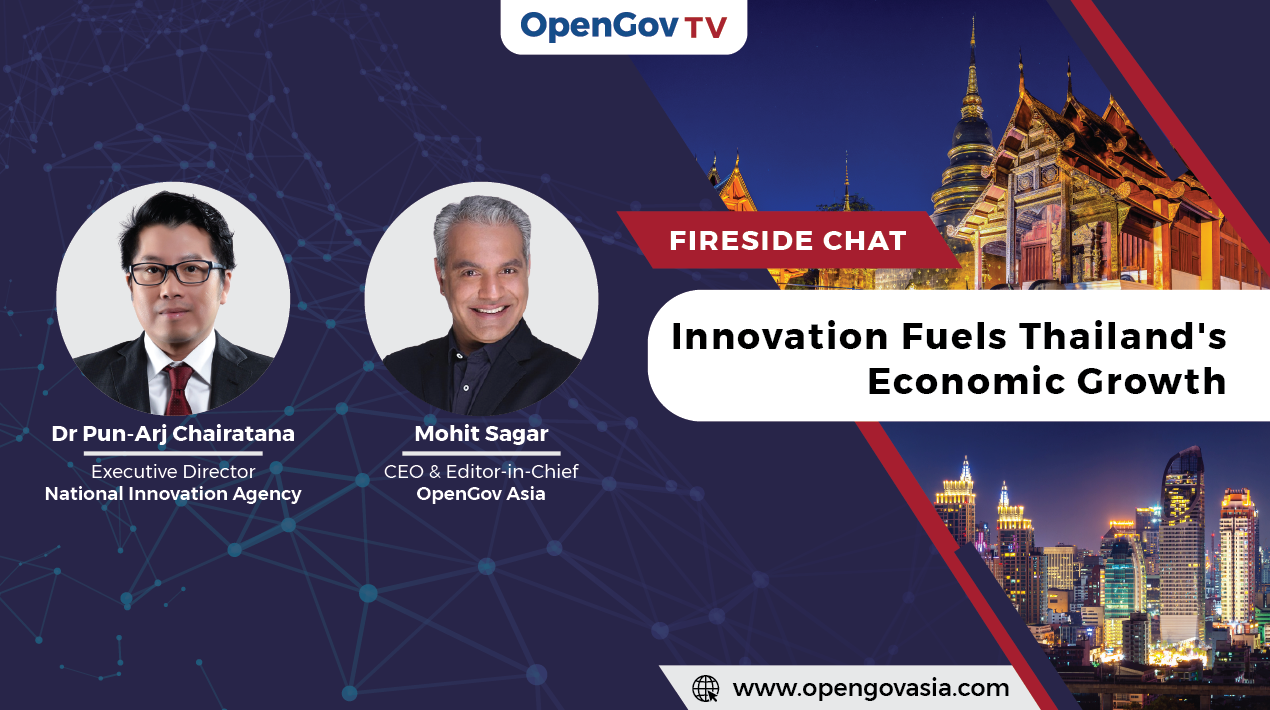
Both in normal circumstances and in times of crisis, Thai people are known to generate a lot of innovative ideas and continue to develop products that make their lives better. This encompasses and encapsulates the nation’s most recent campaign, Innovation Thailand, which promotes Thai creativity to a global audience.
The Innovation Thailand Alliance consists of partners from a variety of sectors including government agencies, private organisations, educational institutions, and civil societies. Through it, the National Innovation Agency of Thailand (NIA), is expanding the scope of its Innovation Thailand platform.
The fundamental goal is to use national/local ideas to revitalise the nation by promoting awareness of and pride in inventive Thai works. Allies will serve as ambassadors in the effort to promote Thailand as an innovative nation. They will be able to exchange knowledge and skills with one another at the same time.
All stakeholders are enthusiastic to help Thailand achieve its goal of being one of the world’s top 30 innovative nations by 2030 and turning Thailand into an innovation-driven country.
Innovation Capabilities of Thai People
The National Innovation Agency’s mission is to support and develop Thailand’s innovation system to promote economic restructuring and competitive enhancement.
 In an exclusive interview with Mohit Sagar, CEO and Editor-in-Chief, Dr Pun-Arj Chairatana, Executive Director of the National Innovation Agency, Thailand shared the attest update on the Innovation Thailand platform that NIA launched for its national economic recovery.
In an exclusive interview with Mohit Sagar, CEO and Editor-in-Chief, Dr Pun-Arj Chairatana, Executive Director of the National Innovation Agency, Thailand shared the attest update on the Innovation Thailand platform that NIA launched for its national economic recovery.
“We began the Innovation Thailand campaign before COVID-19 because we faced a significant challenge in terms of how not only Thai people but also global clients, perceive the nation’s unique products and services,” explains Dr Pun-Arj.
Even though this may not be directly related to innovation, the NIA has attempted to communicate and brand national innovation in such a way that it can be easily connected not only with Thais but also with international customers – this is how they started the Innovation Thailand platform.
Thailand is a tourist destination and one of the top three in the world, which has caused the country to innovate their lifestyle as well as their livelihood.
Thai culture places a high value on craftsmanship and attention to detail. Thai innovation for artful living is a process created exclusively by the fusion of modern technology and knowledge passed down from one generation to the next.
“We have created ingenious solutions through this method that enhances the standard of living in terms of society, prosperity, health, safety, and the environment,” Dr Pun-Arj furthers.
They began to construct a community to exchange ideas, develop, and manage innovation that would result in delivering some information or any significant strategic movement that the government could initiate.
They are recruiting more Chief Innovation Officers from not only the private sector but also the public sector and universities, as part of their primary target group.
Dr Pun-Arj is looking to enhance the opportunities brought in by innovation, particularly at the regional level in the city. This is because they are working not only on economic development but also on the skillset of the social innovation division and platform.
“As a result, our primary focus is on regionalisations of innovation possibilities, as well as startups – innovation-based firms,” reveals Dr Pun-Arj.
He believes that every successful community is built upon a robust and well-functioning infrastructure. Hence, Thailand’s industries and infrastructure will be modernised to meet upcoming challenges.
“In the past, one of our five-year priorities included buildings which we identify as system integrators. As the system and ecosystem become more robust, we are transitioning from system integrators to full core facilitators.”
He emphasised the need to consider the impact of being a system integrator before transforming themselves into focal facilitators. Furthermore, the country wants to make better use of the enormous resource of innovation in universities to conduct research and technology in collaboration with other organisations across the world.
Through the City Innovation Index, which focuses primarily on districts and cities, the NIA promotes and monitors the constant innovation and evaluation of diverse organisations. Periodically, they performed surveys in particular industries to evaluate and propose answers for the difficulties they face.
A strong innovation strategy will evaluate the overall objectives, the target portfolio for innovation initiatives, and the process for allocating the necessary resources. The portfolio clearly defines innovation-critical benchmarks and bounds. Therefore, the nation will become democratic and transparent.
“I believe the government’s most essential innovation strategy focuses on three specific concerns. You must have highly strong and capable businesses of all sizes that will establish a very strong enterprise on its own. And secondly, you must have laws and regulations,” Dr Pun-Arj asserts. “In addition, governance is also required and identifying future risks.”
Thailand is struggling with several issues, including inequality, which includes limited access to public services, digital technology, education, and environmental problems. High manufacturing costs and new types of competition in the global supply chain became challenges for Thailand, with this, innovation has emerged as the country’s answer.
Additionally, there are many challenges in terms of digital transformation and government service and the nation is pushing for innovation that can deliver a good policy and deploy it into practice.
In the previous five-year plan, NIA primarily focused on the job of system integrator into four core facilitators. “That is why the short-term strategy is to train management in the methods, programmes, and activities that we have implemented over the last five years.”
NIA is primarily concentrated on strengthening the potential of regional innovation in several key sectors such as new technologies, assistance for startups, venture capital creation or investment for innovation, and internationalisation of Thailand’s innovation.
Dr Pun-Arj envisions a stronger Thai economy and society, with innovation playing a key role in propelling it. The Bio-Circular-Green Economy (BCG) model is a plan for the country’s growth and post-pandemic recovery. The BCG model focuses on four strategic sectors: agriculture and food, wellness and medicine, energy, materials, and biochemicals and tourism and creative economy.
It emphasises using science, technology, and innovation to turn Thailand’s comparative advantage in biological and cultural diversity into a competitive advantage. The primary aim is to support the sustainability of biological resources, develop local economies and communities and make Thai BCG industries more competitive and resilient to societal changes.
The approach is meant to make Thailand’s economy, society, and environment more sustainable and inclusive. “To achieve the 2030 goal, we must work incredibly hard to encourage innovation in this BCG economy. At the same time, the national policy needs to be improved.”
Dr Pun-Arj has been recognised as a pioneer in the domains of foresight and innovation management in the country. He counsels anyone aspiring to be a great innovator to fully comprehend the concepts of uncertainty and failure.
“Innovation will help us grow as a community or nation by making ourselves and others aware of the importance of innovation,” Dr Pun-Arj concludes.
















